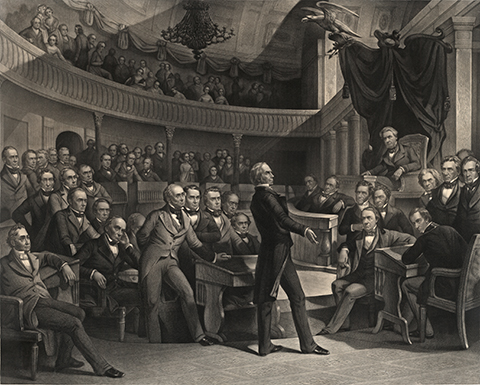Introduction
Have you ever had a disagreement with a friend or family member you thought would never be resolved? Often times, you try to work it out by some sort of compromise, but neither of you feel completely satisfied with the outcome. At some point, you either find a compromise that works for both of you or the relationship may be ripped apart.
Our representatives in government have to compromise daily on important issues because the people they represent fall on opposite sides. Is there one serious issue in the United States about which you could not compromise?
Many Americans felt that way about slavery. As we have already learned, it was a very controversial and emotional issue. The lawmakers at the time worked vigorously to satisfy Americans in the North and the South. They even managed to agree on two compromises in the 1800s. Unfortunately, finding a compromise that provided a permanent solution to satisfy Americans on both sides of the slavery issue proved to be an insurmountable task.
Watch The Missouri Compromise, 1820 to learn about the compromise that resolved the issue of unequal representation of free and slave state in the U.S. Congress. (Discovery Education)

Henry Clay in the Senate
Following successful completion of this lesson, students will be able to:
- Summarize major compromises that delayed civil war including the Missouri Compromise of 1820 and the Compromise of 1850.
The above objectives correspond with the Alabama Course of Study: United States History I: Objective: 12.1.
This lesson incorporates the following Literacy Standards: R1, R2, R9, W4, W7, W9, and W10.